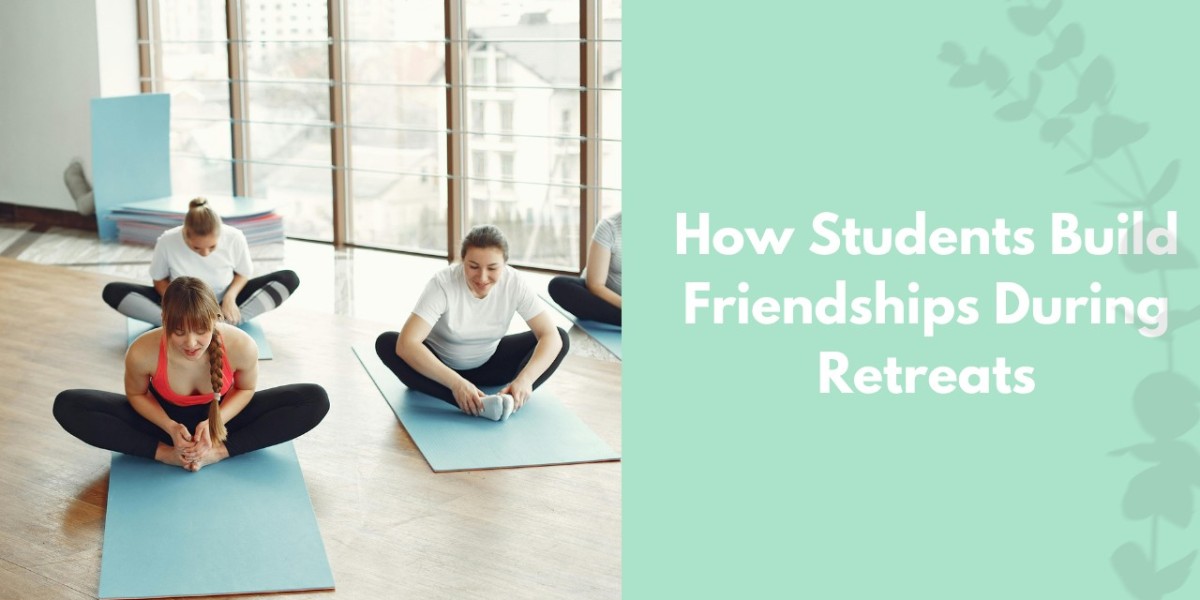When people think of yoga retreats, they often imagine silence, meditation, and deep self-reflection. While these are certainly essential aspects, retreats are also powerful spaces for connection and friendship. Far from the distractions of daily life, students meet like-minded seekers who share similar goals: growth, healing, and self-discovery. These shared intentions often create bonds that last far beyond the retreat itself.
This article explores how students naturally build friendships during retreats, why these connections feel so authentic, and how the retreat environment fosters a sense of community.
1. Shared Intentions Create Instant Connection
At a yoga retreat, participants may come from different countries, cultures, and professions, but they are united by a common purpose—to explore yoga, wellness, and inner peace. This shared intention breaks down barriers quickly, allowing people to connect on a deeper level than they might in everyday life.
Unlike social gatherings where small talk dominates, retreat conversations often revolve around personal journeys, challenges, and growth. This honesty forms the foundation of strong friendships.
2. Practicing Together Builds Trust
Yoga, meditation, and pranayama are vulnerable practices. When students share this journey—moving through postures, sitting in silence, or chanting together—they create a sense of mutual trust.
Partner yoga or group activities encourage teamwork.
Morning practices done together strengthen bonds.
Celebrating small victories—like mastering a posture—creates collective joy.
Over time, this shared discipline builds a feeling of belonging and mutual respect.
3. Sharing Meals Strengthens Community
Retreats often include sattvic meals served in community dining halls. Eating together becomes a sacred ritual where students share food, laughter, and stories.
Food has always been a universal connector, and in the retreat setting, meals are not rushed. This unhurried time gives space for genuine conversations and bonding.
4. Silence Brings Deeper Understanding
It may seem surprising, but even periods of mauna (silence) during retreats can foster connection. Sharing silence with others creates a powerful sense of unity that goes beyond words.
When silence ends, conversations often feel more heartfelt and intentional. Students realize they’ve understood one another at a deeper level without even speaking.
5. Cultural Exchange Enriches Friendships
Retreats attract students from around the world—Europe, America, Asia, and beyond. This diversity makes the friendships richer. Students exchange stories, traditions, and perspectives, creating a global bond rooted in shared human experience.
Many leave retreats not only with friends but with a sense of being part of an international family.
6. Emotional Vulnerability Leads to Authentic Bonds
Retreats often invite self-reflection and healing. Students journal, meditate, and sometimes release long-held emotions. When people share their struggles in group discussions or informal chats, they often feel deeply understood and supported.
This vulnerability creates friendships that are authentic, compassionate, and free from superficiality.
7. Adventures Outside the Retreat
Beyond yoga halls, retreats often include excursions—visits to temples, river walks, or hiking in nature. These shared adventures create lighthearted memories and fun, deepening the bonds among participants.
8. Friendships That Last Beyond the Retreat
The friendships formed during retreats often continue long after students return home. With the help of technology, they stay connected through calls, messages, and even plan reunions or future retreats together.
For many, these friendships serve as ongoing support systems for maintaining a yogic lifestyle.
Popular Yoga Programs in Rishikesh
Students often choose Rishikesh because of the wide range of yoga courses available, catering to every level of practice.
100 Hour Yoga Teacher Training Course In Rishikesh – A short-term foundational course ideal for beginners or travelers looking to deepen their practice in a limited timeframe.
200 Hour Yoga Teacher Training – The most popular certification, providing a complete introduction to teaching methodology, philosophy, and balanced practice.
300 Hour Yoga Teacher Training – An advanced course designed for students who have already completed 200 hours and want to master their skills.
500 Hour Yoga Teacher Training In Rishikesh – A comprehensive program combining 200 and 300 hours, perfect for those who want the highest level of yoga education.
7 Days Yoga Retreat In Rishikesh – A wellness-focused retreat for students who may not want certification but are seeking rejuvenation, relaxation, and balance.
Frequently Asked Questions (FAQ)
1. Do you have to be social to make friends at a retreat?
Not at all. Friendships form naturally in the supportive retreat environment, even for introverts.
2. Are friendships at retreats really long-lasting?
Yes. Because they’re built on shared growth and authentic connection, many last for years.
3. What if I prefer solitude during a retreat?
That’s completely fine. Retreats respect personal boundaries. Friendships will still form naturally when you’re ready.
4. Do cultural or language differences create barriers?
Usually not. Shared practices like yoga and meditation often transcend words.
5. Can retreats help me find a supportive community?
Absolutely. Many students find their global “sangha” (spiritual community) through retreats.
Conclusion
Friendship is one of the most unexpected yet rewarding gifts of a yoga retreat. In an environment designed for authenticity, stillness, and self-growth, connections form naturally—free from judgment and superficiality.
Through shared practices, meals, silence, and adventures, students often discover friendships that not only enrich the retreat experience but also continue to nurture them long after they’ve returned home.
In a world where true connection is rare, retreats remind us that community, compassion, and friendship are as much a part of healing as yoga itself.


